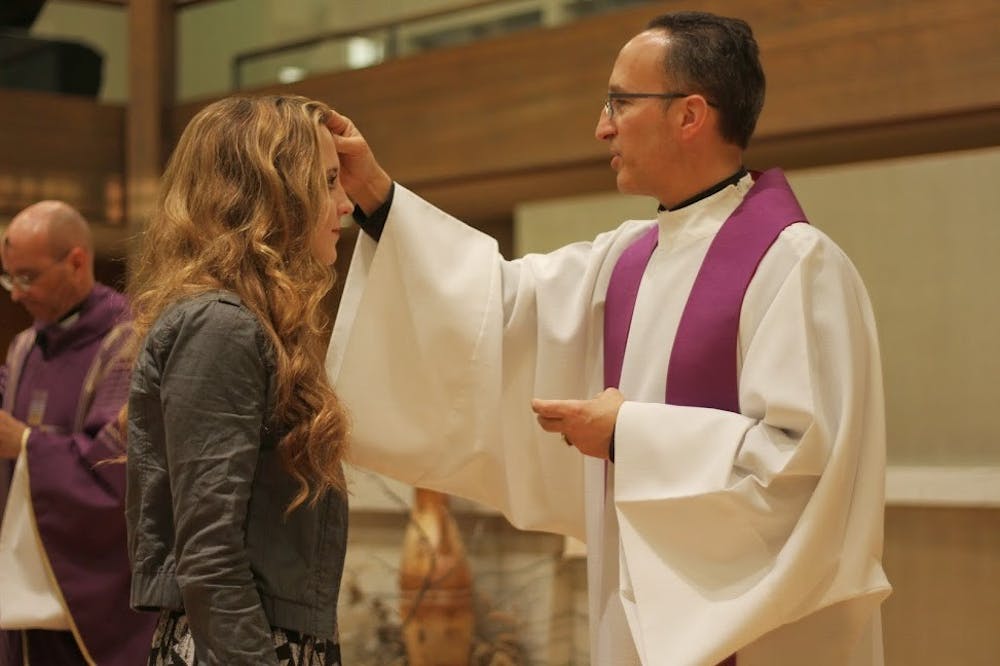By Anthony Paz |
Over 700 souls at the University of Portland attended Mass on Feb. 18, Ash Wednesday.
This is an extraordinary number - double the normal Sunday Mass attendance.
What is it about this day that resonates so strongly with our community? Of all the Masses to attend, Ash Wednesday is perhaps the most somber and least uplifting.
We leave with a smudge of ashes on our heads and most of us will spend the rest of the day explaining to well-meaning strangers that, “Yes, I do know there’s something there.” Yet, all over the country, Ash Wednesday services are packed to the rafters.
Ash Wednesday is just a part of something greater, and the ashes we wear become a rare public expression of humble vulnerability. They kick off an entire season of admitting how often we are broken, burned, smudged, morally inept, and, most importantly, in need of serious help: Lent.
This is the time we are now in - 40 days (not counting Sundays) of increased reflection and religious practice in the form of prayer, fasting and almsgiving. Lent is all about recognizing that we have some things to work on and asking for God’s help to do it. Extra devotions and a little bit of self-deprivation are ways to allow God to change our hearts.
The amazing desire to receive ashes proves just how important the season of Lent is. The ashes show that we recognize the ways in which we are fragile and often miss the mark.
All of us have something we’re not proud of - darkness that inhibits our ability to be the best version of ourselves. These problems may be our own doing or they might be the result of some external factor.
Whatever the origin, there is always an associated wound that needs healing. Lent is the time to search for a salve for those wounds.
The Christian tradition has recommended prayer, fasting and giving to the poor as ways to begin that search for centuries. Whatever the magnitude of the darkness you face, these practices in their many forms do something to change our thinking and bring light to our spirits.
But, one never does them alone.
The community of believers is there with you. And of course God is present in the very invitation to improve. Just as we receive ashes with so many others on Ash Wednesday, we also have millennia of wisdom at our disposal for forging our own effective Lenten practices.
Concretely, there are so many opportunities on campus for extra prayer, fasting, giving of ourselves and receiving support.
If you’re looking for a place to start, just visit your pastoral resident, your local campus minister, or a student campus ministry leader, like a faith and formation ambassador or a member of the servant leadership team.
Don’t let a desire for ashes begin and end on Ash Wednesday - find out what you can do with it.
Anthony Paz is Director of Faith and Formation. He can be reached at paz@up.edu or the Campus Ministry Office in the Pilot House.









